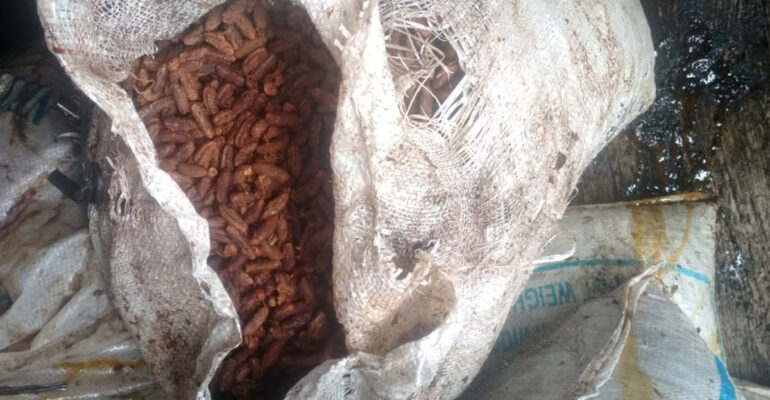IPB University students take advantage of date seeds as antidiabetic

According to WHO data, diabetes is a chronic disease that occurs when the pancreas does not produce enough insulin (a hormone that regulates blood sugar or glucose) or when the body cannot use the insulin that has been produced effectively.
Various efforts have been made to deal with the incidence of diabetes mellitus, one of which is by inhibiting the work of alpha-glucosidase which is a key enzyme in carbohydrate digestion and alpha-glucosidase inhibition process is considered effective to delay the breakdown of carbohydrates in the small intestine and to reduce abnormal blood glucose levels in diabetics.
The inhibition of alpha-glucosidase action is usually carried out through the consumption of commercial drugs circulating in the community. Commercial drugs commonly used to inhibit alpha-glucosidase, including acarbose, voglibose, and miglitol. However, the consumption of commercial drugs has side effects such as nausea, vomiting, stomach cramps and hepatotoxicity.
IPB University students from the Biochemistry Study Program namely Lisa Giovanny, Faliha Arinda L and Nurul Marfira through the activities of the Research Field Student Creativity Program (PKM PE) examined dates as an anti-diabetes drug. The research they conducted was titled “Milky Way: Date Seeds (Phoenix dactilyfera L.) As Antidiabetic with the Mechanism of Kinetics of Alpha-Glucosidase Inhibition” under the guidance of Dr. Laksmi Ambarsari, MS from the Department of Biochemistry, Faculty of Mathematics and Natural Sciences (FMIPA), IPB University.
According to Lisa, dates contain secondary metabolites of flavonoids and saponins which is able to inhibit alpha-glucosidase, a key enzyme in carbohydrate metabolism. Previous research has proven that water, ethanol, methanol and acetone extracts are capable of inhibiting alpha-glucosidase, but there have been no studies that explain the inhibitory activity of 70 percent ethanol extract of date palm seeds on alpha-glucosidase with its inhibitory kinetics mechanism.
This study aims to measure the activity of 70 percent ethanol extract of date seeds by the mechanism of inhibition of α-glucosidase kinetics. The results of the study showed that 70 percent ethanol extract of date seeds was able to inhibit the alpha-glucosidase enzyme with an inhibition percentage of 61 percent at a concentration of 1000 ppm. In addition, the results of the study show that the ethanol extract of 70 percent of date palm seeds inhibits alpha-glucosidase in a mixture.
“The result is 70 percent ethanol extract of date seeds inhibits alpha-glucosidase in a competitive and non-competitive manner with its substrate. From the results of this research, it is hoped that an innovative and safe anti-diabetic product will be produced from 70 percent ethanol extract of date palm seeds. This research is also expected to produce scientific articles on date palm activity in inhibiting alpha-glucosidase by the mechanism of enzyme inhibition kinetics. In addition, this research is also expected to produce patents as antidiabetic drugs, “explained Lisa as Chair of the research program.
This research provides many benefits for students and universities and contributes to the potential knowledge of date palm seeds as antidiabetic drugs. This research is also useful so that students are interested in conducting research on the use of active ingredients from natural ingredients such as date palm seeds which are efficacious as antidiabetic.
According to Lisa, the industrial sector can also utilize the results of this study as part of the innovation of antidiabetic products. For the community, this study provides knowledge about the efficacy of dates as antidiabetic. (AVR)



